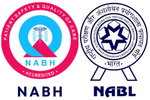“Think you’re healthy? Here’s why a whole body check-up still matters.”

Ever noticed how we rush to the doctor when something hurts, but rarely go when everything feels fine? That’s like waiting for your car to break down before getting an oil change.
A whole body health check-up isn’t just for hypochondriacs or the ultra-health-conscious. It’s your body’s regular maintenance schedule, catching problems while they’re still whispering instead of screaming.
Think about it: that slightly elevated blood pressure or those borderline blood sugar levels? They don’t announce themselves with sirens. They silently lay groundwork for bigger issues while you’re busy living your life.
But here’s what most people don’t realize about these check-ups, and it might completely change how you think about your health…
Understanding Comprehensive Health Check-ups
What exactly is a whole body health check-up?
Ever wondered what doctors actually do during those annual exams? A whole body health check-up is basically your body’s version of a car inspection – but way more important. It’s a series of medical tests and examinations that assess your overall health status, from your blood work to your organ functions.
These check-ups aren’t just random tests thrown together. They’re strategically designed to create a complete picture of your health, catching potential issues before they become serious problems. Think of it as hitting the reset button on your health awareness.
Key components of a thorough health assessment
A proper health check-up isn’t just a quick once-over. It digs deep into your health status through:
- Physical examination: Height, weight, blood pressure, heart and lung checks
- Blood tests: Complete blood count, cholesterol levels, blood sugar
- Organ function tests: Liver, kidney, thyroid function
- Imaging tests: X-rays, ultrasounds, or other scans when needed
- Specialized screenings: Based on age, gender, and risk factors
Each component works together like puzzle pieces, revealing your complete health picture rather than just isolated symptoms.
Early Detection Saves Lives

A. Identifying silent health threats before symptoms appear
Your body can harbor serious conditions without waving a red flag. Many health issues develop silently for years before symptoms show up. A whole body check-up works like an early warning system, spotting problems while they’re still manageable.
Think of your car – you don’t wait for smoke pouring from the engine to get it serviced. Your body deserves the same preventive care.
B. Success stories: When screenings caught serious conditions early
James thought he was perfectly healthy at 42 until his routine check-up revealed early-stage colon cancer. With immediate treatment, he’s now cancer-free five years later.
Sarah’s screening detected dangerously high blood pressure that could have led to a stroke. Simple medication adjustments prevented a potential tragedy.
These aren’t rare exceptions – they’re everyday examples of screenings making the difference between life and death.
Preventing Disease Progression
How monitoring key health markers prevents complications
Ever caught a small issue before it exploded into a disaster? That’s exactly what regular health check-ups do for your body. When doctors track your blood pressure, cholesterol, blood sugar, and other vital markers, they’re essentially catching red flags before they become emergencies.
Think about diabetes. When your blood sugar creeps up gradually, you might not feel a thing. But a routine check-up spots those rising numbers early, allowing for simple lifestyle changes instead of insulin dependence down the road.
Regular monitoring doesn’t just identify problems—it gives you a baseline of what’s normal for YOU. Because sometimes, what’s “normal” on a chart isn’t normal for your body.
Comprehensive Insight Into Your Body Systems

A. Cardiovascular health assessment benefits
Ever wonder what’s really going on with your heart? A cardiovascular health assessment doesn’t just check your pulse and send you on your way. It dives deep into how well your heart muscle functions, examines your blood vessels, and measures crucial indicators that could save your life.
These assessments spot problems before they become emergencies. High blood pressure, irregular heartbeats, and cholesterol issues often have no symptoms until they’re serious. Finding them early gives you the chance to make changes when they’ll have the biggest impact.
The numbers don’t lie – people who get regular heart screenings reduce their risk of heart attacks by up to 60%. That’s not just a statistic; it’s potentially years added to your life.
B. Detecting metabolic disorders and hormonal imbalances
Your body is constantly having conversations through hormones and metabolic processes. When these conversations go wrong, everything from your energy levels to your weight can spiral out of control.
A comprehensive health check-up examines thyroid function, blood sugar levels, and hormone balances that control everything from how you sleep to how your body processes food. Many people walk around with undiagnosed diabetes, thyroid disorders, or hormonal imbalances for years, blaming their symptoms on “just getting older” or “being stressed.”
The truth? Most metabolic and hormonal issues are completely manageable when caught early. The difference between finding these problems during a routine check-up versus an emergency room visit can be dramatic – both for your health and your wallet.
C. Kidney and liver function evaluation
Your kidneys and liver are the unsung heroes of your body’s cleanup crew. They filter toxins, process nutrients, and keep your internal environment balanced. When they struggle, your entire body feels the effects.
During a whole body check-up, simple blood and urine tests can reveal how efficiently these vital organs are working. Many liver and kidney problems develop silently over years with few noticeable symptoms until significant damage occurs.
Catching elevated liver enzymes or reduced kidney function early gives you the opportunity to make protective changes before permanent damage happens. Something as simple as adjusting medications, improving hydration, or modifying your diet could preserve these essential organs for decades longer.
D. Respiratory system screening advantages
Every breath you take depends on healthy lungs and airways. Respiratory screenings go beyond the simple “take a deep breath” test. They measure your lung capacity, oxygen exchange efficiency, and can detect early signs of conditions from asthma to COPD.
Many respiratory issues develop gradually, with people slowly adapting to diminished breathing capacity without realizing it. You might think you’re just “out of shape” when climbing stairs, not recognizing it as an early warning sign.
These screenings are particularly valuable for smokers, former smokers, and people with exposure to environmental pollutants. Catching respiratory problems early often means simpler treatments and better long-term outcomes. In some cases, early intervention can actually reverse damage that would otherwise become permanent.
Personalized Health Roadmaps
How check-up results shape your healthcare strategy
Think of your health check-up results as your body’s personal status report. They reveal what’s working well and what needs attention. Your doctor doesn’t just hand you these results and send you on your way. Instead, they use this information to craft a strategy that’s uniquely yours.
When your cholesterol numbers come back high, your doctor doesn’t just prescribe medication. They look at your family history, your diet, your exercise habits, and then build a plan that makes sense for your life. Maybe it’s a gradual approach to changing your diet rather than a complete overhaul that would be impossible to maintain.
This isn’t a one-size-fits-all game. Your health roadmap might focus on heart health while your partner’s might target diabetes prevention. That’s the beauty of personalized medicine.
Customized lifestyle recommendations based on your results
Your check-up might reveal you’re pre-diabetic. Your doctor won’t just tell you to “eat better.” They’ll break it down: fewer refined carbs, more protein with meals, specific exercises to improve insulin sensitivity.
The best recommendations work with your real life, not against it. Love pasta? Your doctor might suggest whole grain options and proper portion sizes rather than eliminating it. Travel constantly for work? They’ll help you find healthy airport food options and hotel room workouts.
These tailored suggestions stick because they’re made for you, not some imaginary perfect patient.
Beyond Physical Health: Complete Wellness Assessment

Mental Health Screening Components
Think about it. You’re getting your blood pressure checked, but what about the pressure in your mind? A complete wellness checkup goes beyond your physical stats.
Modern health screenings now include mental health evaluations that check for anxiety, depression, and other mood disorders. These aren’t intimidating sessions with a therapist (though those are great too). They’re simple questionnaires that help identify if something’s off.
The beauty of these screenings? They catch issues before they snowball. That slight irritability you’ve been feeling might actually be the beginning of something that needs attention.
Stress Level Evaluation and Management
Your body keeps score of the stress you endure. High stress levels can trigger everything from headaches to heart problems.
During a comprehensive health check, doctors measure your cortisol levels (the stress hormone) and identify physical symptoms of chronic stress. They’ll ask about your work-life balance and major life changes.
Based on your results, you might receive recommendations like:
- Meditation practices tailored to your personality
- Exercise routines that reduce stress
- Breathing techniques for immediate relief
- Potential lifestyle adjustments
Sleep Quality Assessment
Bad sleep isn’t just about feeling tired. It’s linked to serious health issues like heart disease, diabetes, and weight gain.
A thorough health assessment examines your sleep patterns through:
- Sleep duration tracking
- Sleep disturbance identification
- Evaluation of daytime functioning
- Assessment of sleep environment
Your doctor might suggest a sleep study if there are signs of sleep apnea or other disorders.
Nutritional Status and Dietary Guidance
Your body is built from what you eat. A comprehensive nutritional assessment looks at:
- Vitamin and mineral levels in your blood
- Signs of food sensitivities or allergies
- Your current eating patterns
- Body composition analysis
The results create a roadmap for optimal nutrition. Maybe you need more vitamin D. Perhaps your protein intake isn’t matching your activity level. Whatever the findings, you’ll get personalized recommendations that work with your lifestyle, not against it.
Making Informed Decisions With Your Health Data
Understanding your test results and health metrics
Ever stared at a health report and felt like you’re reading hieroglyphics? You’re not alone.
Those numbers and medical terms can seem overwhelming, but they tell your health story. Blood pressure readings show how hard your heart works. Cholesterol levels reveal your artery health. Blood sugar measurements indicate how well your body processes energy.
Don’t panic about results outside the “normal” range. These ranges are guidelines, not gospel. A slightly elevated reading might mean nothing serious, especially as a one-off measurement.
Ask your doctor these questions:
- “What do these specific numbers mean for someone my age?”
- “How do they compare to my previous results?”
- “Which readings should I pay closest attention to?”
Using health information to take control of your wellbeing
Knowledge isn’t just power—it’s empowerment. Your health data gives you the foundation to make real changes.
High cholesterol? Maybe it’s time to swap that daily burger for something leafier. Borderline blood pressure? Consider meditation or cutting back on salt.
The beauty of health data is tracking progress over time. That downward trend in your resting heart rate? That’s your morning walks paying off. The improving vitamin D levels? Your supplement regimen is working.
Small, consistent changes based on your personal health metrics create bigger results than random health fads.
When to seek specialist consultation based on findings
Some test results definitely warrant expert eyes. Red flags include:
- Significant changes from your previous results
- Multiple readings outside normal ranges
- Symptoms that match concerning test results
- Family history of conditions related to abnormal findings
Don’t wait if something feels off. That gut feeling plus concerning data is a powerful combination that deserves professional attention.
Digital tools for managing your health information
Your health data deserves better than stuffed in a drawer or scattered across patient portals.
Today’s health apps let you:
- Store all your health records in one secure place
- Track trends in your key measurements
- Set reminders for medications and follow-ups
- Share information securely with healthcare providers
Many hospital systems offer patient apps that connect directly to your medical records. Independent apps like Apple Health, MyChart, and HealthVault can consolidate information from multiple providers.
The best tool? The one you’ll actually use consistently.
Regular whole body health check-ups serve as your first line of defense against potential health issues. By detecting problems early, monitoring existing conditions, and providing a comprehensive view of your overall wellness, these assessments empower you to take control of your health journey before serious complications arise. The detailed insights gained from these check-ups allow healthcare providers to create personalized health plans tailored to your specific needs.
Your health is your most valuable asset. Don’t wait for symptoms to appear before taking action. Schedule a comprehensive health check-up today and invest in your future wellbeing. With the detailed health data these assessments provide, you can make informed decisions that protect your health for years to come. Remember, prevention is always better than cure.


